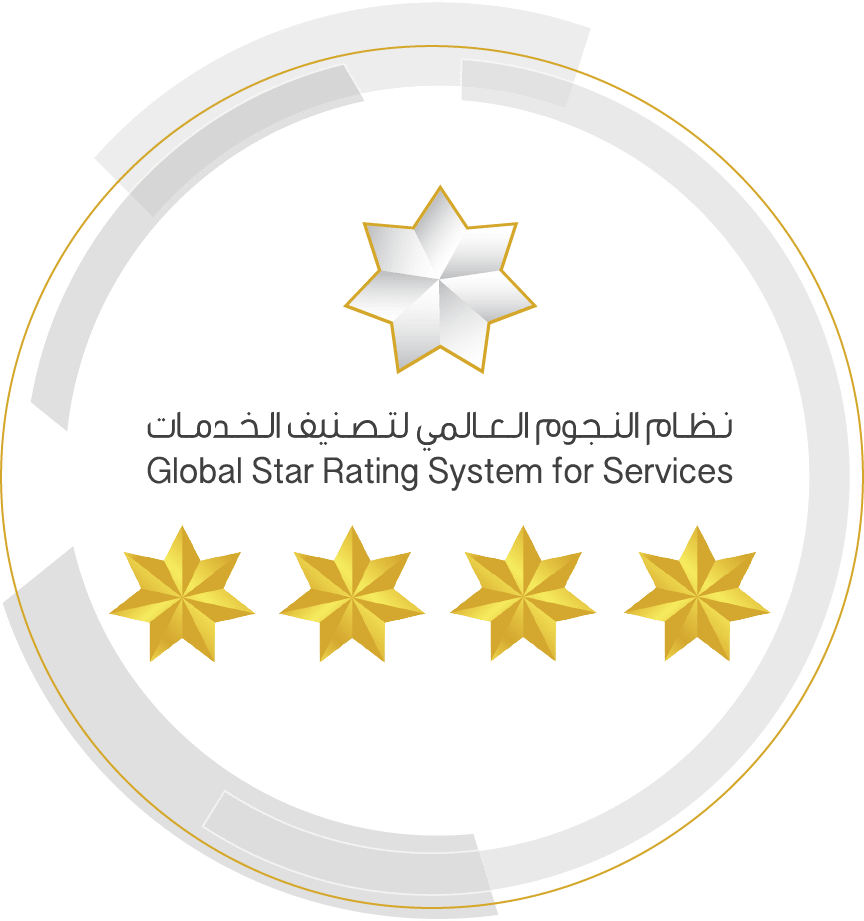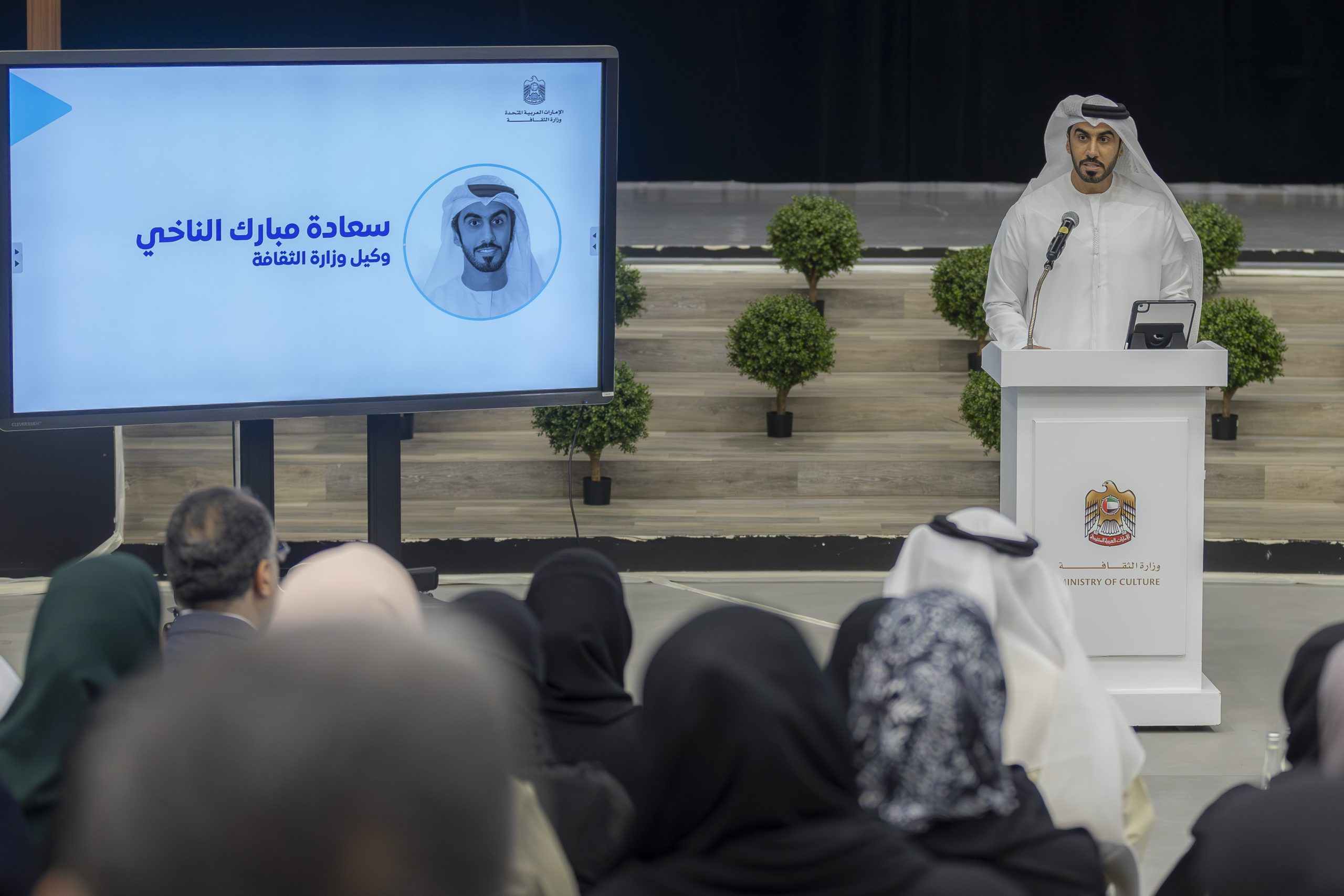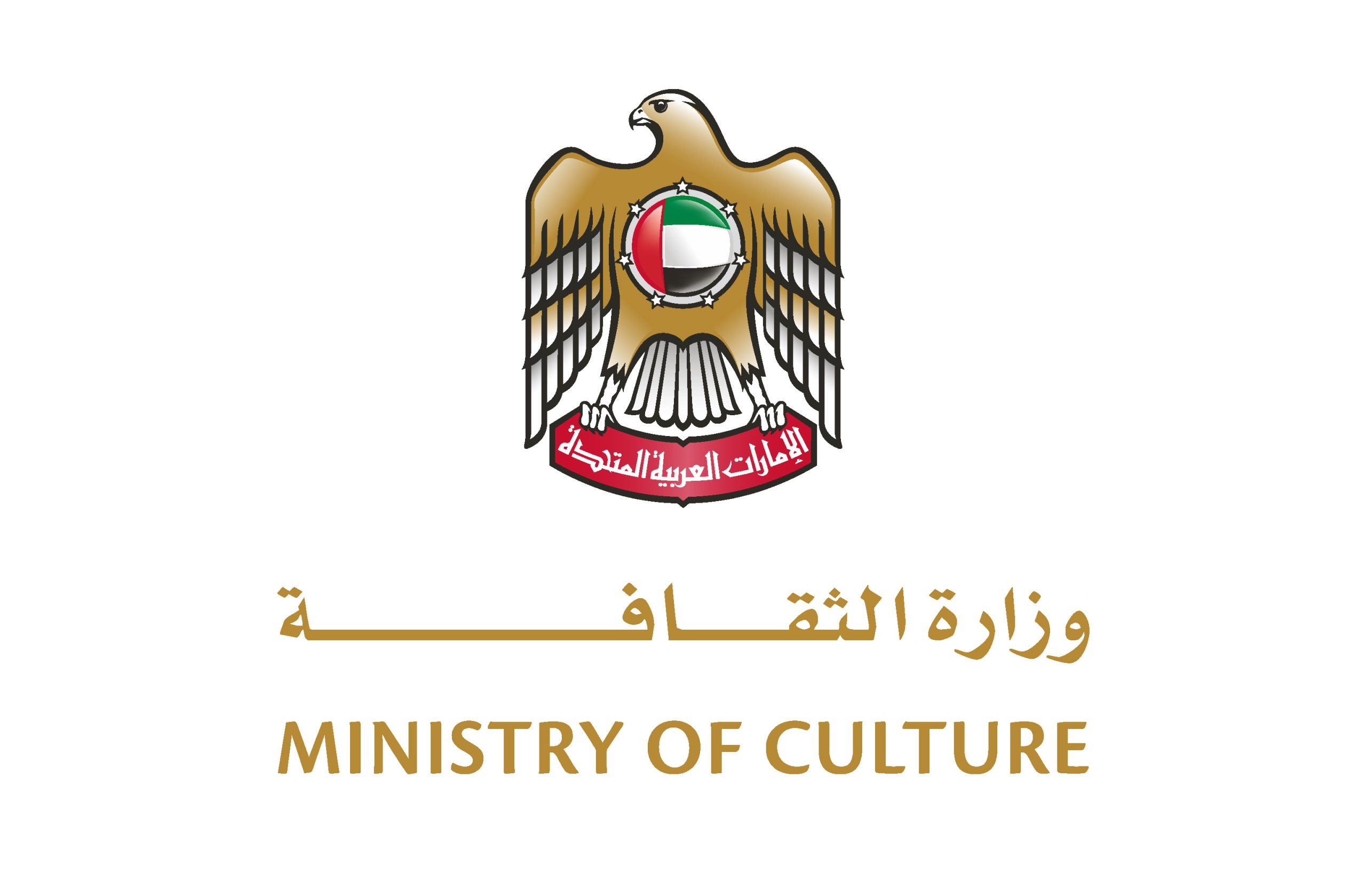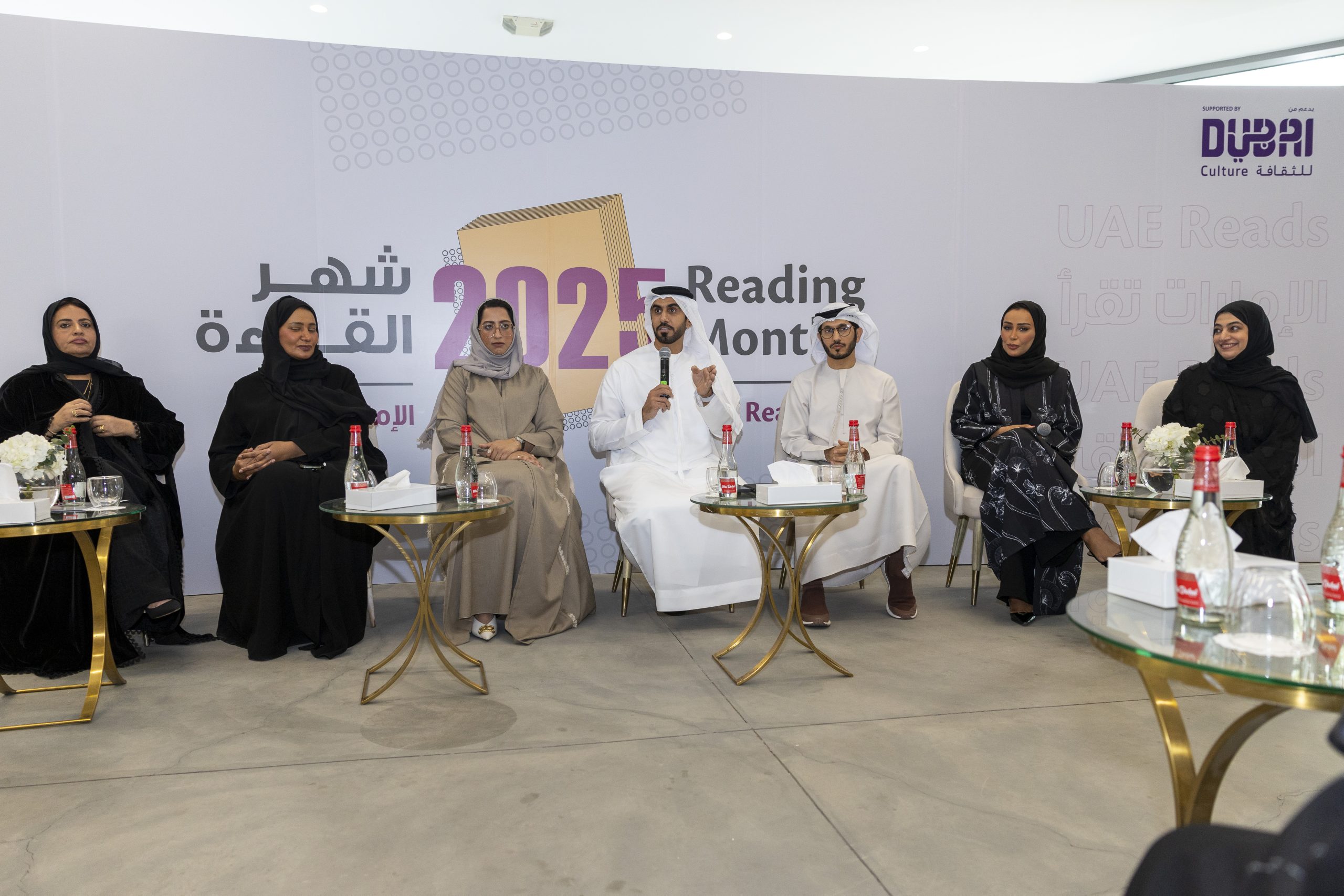Notifications
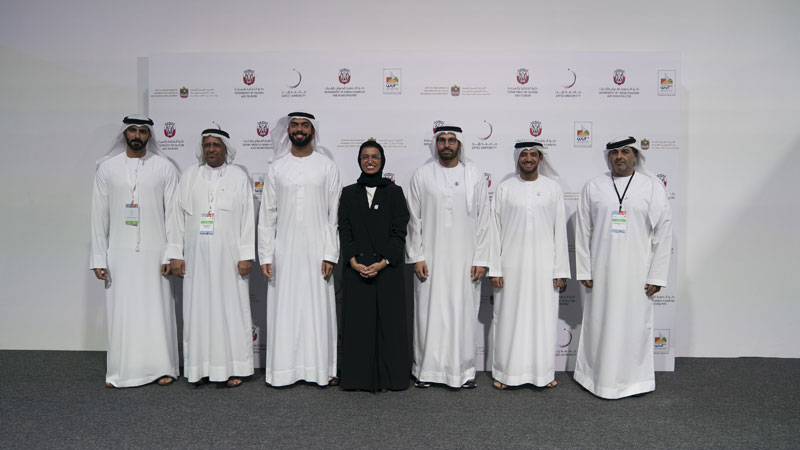
Launch of a national project to develop architecture knowledge in the UAE
April 14, 2019
The Ministry of Culture and Knowledge Development signed strategic partnerships with a number of government and academic institutions to launch the “UAE Architecture initiative”. The partnerships were signed with the Department of Urban Planning and Municipalities in Abu Dhabi, the Department of Culture and Tourism in Abu Dhabi and Zayed University. The signing ceremony was attended by H.E. Noura Al Kaabi, Minister of Culture and Knowledge Development, H.E. Mohammed Khalifa Al Mubarak, Chairman of the Department of Culture and Tourism Abu Dhabi, H.E. Falah Al Ahbabi, Chairman of Urban Planning and Municipalities Department, H.E. Prof. Reyadh Al Mehaideb, Vice-President of Zayed University, H.E. Sheikh Salem Al Qassimi, Assistant Undersecretary for the Heritage and Arts Sector, H.E.Saif Saeed Ghobash Undersecretary of the Department of Culture and Tourism – Abu Dhabi, and H.E. Mohamed Al Khadar Al Ahmed, Executive Director of Strategic Affairs.
The project aims to document the country’s modern architectural heritage and introducing its outcomes to the local, regional and international audiences, as well as developing architectural knowledge and urban planning in the UAE by placing it in a local context.
HE Noura Al Kaabi, Minister of Culture and Knowledge Development, said:
“The UAE Architecture initiative is in line with our strategic objectives to preserve and document the country’s architectural heritage for the benefit of future generations. Architecture reflects the UAE’s progress, evolution and lifestyle, while highlighting the beauty, design and simplicity of the architectural styles that prevailed in the past.”
Al Kaabi stressed that our strategic partnership with a number of our national and academic institutions will contribute to chronicling the heritage of the past and contributes to the development of rich content that highlights the urban landscape, explores the effects of urbanization on daily life and revives old architectural styles in contemporary designs.
The Minister of Culture and Knowledge Development pointed out that the teaching of architectural heritage is the backbone of our project. It entails the preparation of scientific materials to be taught in universities, as a way to transfer our forefathers’ architectural wisdom and vision to younger generations.
HE Mohamed Khalifa Al Mubarak, Chairman of DCT Abu Dhabi: “There is no doubt that the rapid changes in our society have affected architectural patterns, which have grown to be more adaptable to modern living conditions and following a contemporary urban styles over time. It is important to document the different architectural styles that have developed in the country over the past few decades, as part of the collective memory of the historical moments that the society has undergone, as architectural models typically reflect the changing social factors and individual preferences, where new styles form and emerge as a response to cultural components for each era. As part of our mission at DCT Abu Dhabi to preserve cultural heritage by restoring historical monuments and old houses, in addition to the advanced expertise we hold in maintaining the look and feel of the early stages of modern architecture in the country, and it brings us great pleasure to be partaking in the ‘UAE Architecture Initiative’.”
H.E. Falah Al Ahbabi, Chairman of DPM, said: “Hosting the World Urban Forum is a significant opportunity for Abu Dhabi and the Arab world to showcase their achievements and influential role in promoting sustainable urban development, as well as reinforcing our priorities on innovation and cultural exchange. Abu Dhabi advocates cohesive urban development strategy that places sustainable urban development at the service of quality of life. At the core of this vision lies our commitment towards the Sustainable Development Goals and higher quality of living. The foundation of DPM’s four-pillar framework with economic, social, environmental and cultural criteria for sustainable urban development is fully aligned with UN-SDG 11 and the New Urban Agenda. This four-pillar scheme awards a more enlarged scope for the integration of urban culture in future sustainable development strategies, using innovative tools and approaches.”
H.E. Falah Al Ahbabi said: “The Arab World is undergoing major urban transformations. Culture can contribute to sustainable urbanization in various ways. As a nation that champions its cultural heritage and history, as well as its rich cultural diversity in cities, Abu Dhabi intends to lead the way by advancing innovative approaches through integrative policies and programs. As a key step in this direction, DPM presented the first results of the Initial Research on the Cultural Infrastructure conducted with MCKD and Nuqat at the 1st Pan-Arab Urban Development Symposium (PAUDS) organized on March 31st in Abu Dhabi in collaboration with the Regional Office for Arab States of UN-Habitat. The study collects datasets on the urban cultural infrastructure and the presence of innovation clusters across 12 Arab cities. This study falls under the portfolio of initiatives developed by DPM pre, during and post WUF10. “
Prof. Reyadh Al Mehaideb, Vice-President of Zayed University, said that they are very pleased to collaborate with the Ministry of Culture and Knowledge Development and the other project collaborators on the Zayed Architecture Project as an initiative which is part of the Year of Tolerance. “Not only does the project support the mission of the university to educate our students in aspects specific to the national identity, but it will also lay the foundation for further research and development of an education where students, faculty and practitioners can gain more knowledge about architecture and urban history of the UAE, during the late President’s era, and its connection to the global development.”
Adding, “As an educational partner in this collaboration, we see it as our responsibility to support the development of knowledge, those supporting our faculty in setting new standards in cross institutional collaboration and presentation of research from which ultimately our students will benefit on their path to become leading thinkers and ambassador on matters related to their own heritage. The development of the UAE Architecture Index as a referencing tool for the built environment in the UAE will also support the creation and innovation for culturally sensitive, sustainable and contextual projects ideas in various disciplines.”
The project includes a set of outputs related to each phase of its completion in the short, medium and long terms. These include the UAE Architecture Index, which is a comprehensive architectural database and an open-source research reference that combines current and new research on the built environment in the country. Students and researchers specializing in UAE history and urbanism can benefit from this comprehensive and open-source resource, which also provides guidance to decision-makers in the field of preservation, planning and development. Additionally, the index can be used in a variety of public presentations such as exhibitions, publications and the like. The project was designed to be the first federal and collaborative architecture index to document and further knowledge creation and education on the built environment in the UAE. The index will be developed and managed by Zayed Architecture Research Institute h, to be housedat Zayed University.
The Zayed Architecture Research Institute will provide opportunities for research, knowledge development and community outreach on UAE architectural topics through specific initiatives such as a specialized UAE Architecture course. The Institute will be responsible for managing and updating the UAE Architecture Index, directing new research projects, publishing works, presenting them to the general public and accepting submissions from collaborating organizations. The Institute will also evaluate research topics on an annual basis, allowing a structured and comprehensive research gathering to an ongoing research theme. Emphasis will be placed on annual research topics in the index, which could lead to summary publications and an exhibition the following year.
Proposals for annual research topics may be submitted for evaluation by the research institute’s stakeholder and advisory boardon the basis of merit, national priority and the Institute’s strategic direction.
Also among the outputs of the initiative is the publication of a book entitled “Spaces of Coexistence” which addresses the UAE as a global model of tolerance, coexistence and cooperation. It will focus on the various areas of coexistence in the UAE, be it religious spaces, cultural centers, or recreational buildings.. The book seeks to document the spaces of coexistence inan architectural publication, to be released in 2019.
The initiative also includes an exhibition and the publication of a booklet titled “Zayed’s Homes: Architecture of Desert Democracy”.
The late Sheikh Zayed bin Sultan Al Nahyan embodied the spirit of a true Bedouin and the qualities of a great leader. He spent most of his time traveling from place to place across the Emirates to connect with community and to oversee progress on development projects. True to his inclusive nature, Sheikh Zayed regularly held majlis gatherings for consultation and to provide support to the community. His homes served as a base for him to exercise his open door policy and what is described as “desert democracy”. Some of the buildings were rest houses, while others were palaces, farm houses or forts distributed across the country.
This research will be presented in a international exhibition and publication as an architectural inquiry that examines the various typologies seeking to understand their shared principles that allow for “desert democracy” to take place. The intended presentation period would be during the Expo 2020 to celebrate the leadership style of the late Sheikh Zayed, and in the spirit of the Expo “Connecting Minds, Creating the Future,” the presentation would highlight the participatory methods applied in the development history of the UAE.


